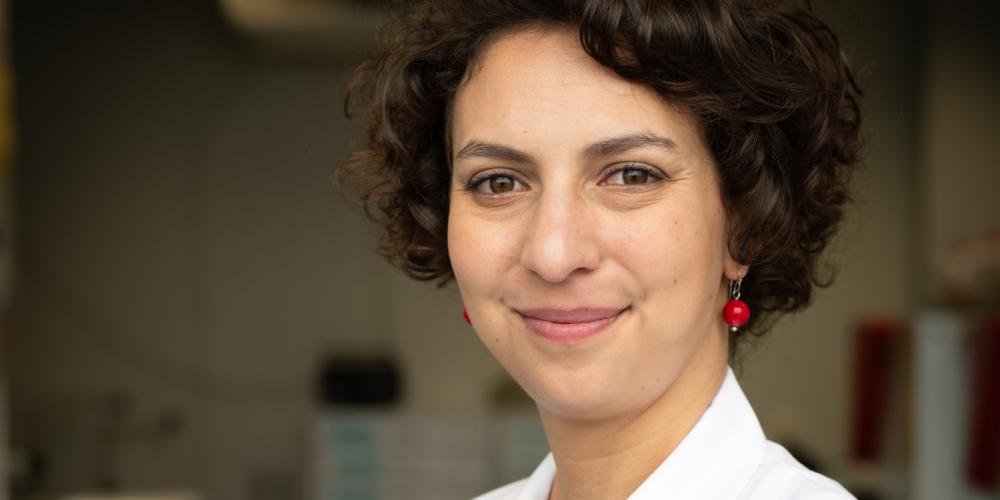
On Saturday 4 February, we put the spotlight on the fight against cancer. For World Cancer Day, we interviewed Prof Dr Ir Damya Laoui, team leader of the Cellular and Molecular Immunology research group. She and her team are conducting fundamental research into a vaccine to prevent cancer recurrence and metastasis.
Damya works as a professor at VUB and the Flemish Institute of Biotechnology. Her focus is on new therapies for cancer. In 2018, she was named the greatest science talent in Flanders and the Netherlands and in 2019 she won the Ignace Vanderschueren Prize for her doctoral research on the role of immune cells in cancer. She is currently working with her team to develop a vaccine against metastasis.
What is immunotherapy?
Malignant tumours contain not only cancer cells but also a number of cells from our immune system. Immunotherapy gives the cells of our immune system a boost, making it easier for them to recognise and destroy cancer cells. Research has shown that some of those immune cells, called dendritic cells, are very good at recognising cancer cells and activating our “soldier” cells. It is these dendritic cells that we will use to develop a personalised vaccine to ensure people with cancer do not relapse.
How does it work?
Suppose you have lung cancer, for example. Your tumour will be surgically removed. Then we extract the good dendritic cells from it and re-inject them into your body as a personalised therapy. The dendritic cells ensure the cancer cannot spread to other parts of the body and they build up a memory so you won’t relapse.
How does your research differ from others?
We use cells from the same patient. These cells have received all the knowledge about the patient’s tumour in the body itself and are very good at destroying that particular tumour. So we don’t need to manipulate cells in the lab, meaning they survive much better. And because those cells come from the patient themselves, you get far fewer side effects than with other types of therapies.
How do you see the future of cancer therapy?
There is a general trend of using combination therapies. Our dendritic cell vaccination works in mice, and hopefully will soon in patients too. If certain patients do not respond to the vaccine, we will first try to find out what the resistance mechanisms are and then what specific therapies we need to combine to make it work. In short, a combination of therapies and more personalised therapies will determine the future of cancer research.
For more information about this research, see the website of the Faculty of Sciences and Bioengineering Sciences.
Yamina Krossa Fonds
In 2015, Yamina Krossa launched a campaign for full reimbursement for breast reconstruction in breast cancer patients. With the remaining funds, the Yamina Krossa Fund is now funding fundamental research on a cancer vaccine by Prof Damya Laoui. You can contribute to this via the website of the Yamina Krossa Fonds.
Interview with Damya Laoui (in Dutch)
Vrije Universiteit Brussel and UZ Brussel fight against cancer
Saturday 4 February is World Cancer Day, the day when the world remembers the impact of cancer. As an Urban Engaged University, the Vrije Universiteit Brussel is committed to the fight against cancer through education and scientific research. The UZ Brussel, the university hospital of the VUB and affiliated with the Faculty of Medicine and Pharmacy, is an important partner in care, education and research.
By combining knowledge and experts on cancer, both institutions want to contribute to a better social awareness of cancer and cancer research. Because more awareness is needed for the prevention and cure of cancer and it also benefits the search for cancer remedies and the well-being of cancer patients.